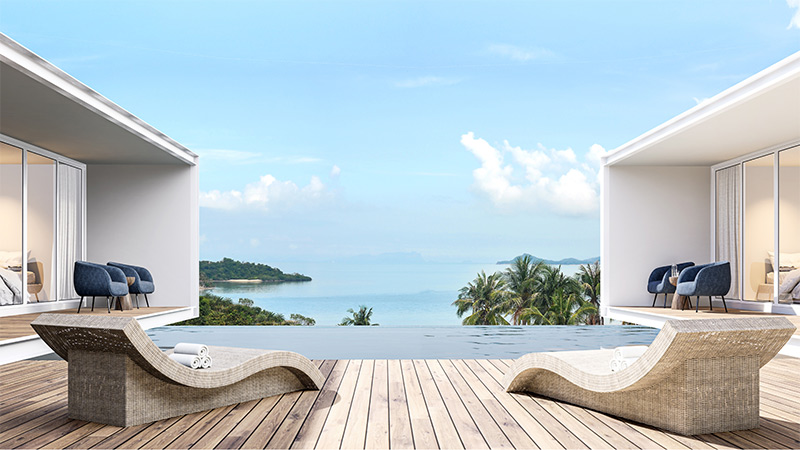
I Just Sold My Business, Now What?
Four Key Considerations Before Buying a Second Home
By Royce Ramey, CFA Co-CEO, Versant Capital Management
For many entrepreneurs, selling a business represents the culmination of years of hard work and dedication. Once the deal is done, you may find yourself with a healthy liquid balance sheet and the freedom to pursue long-held dreams, like purchasing a second home. The allure of a vacation retreat or a family getaway is strong, and for many, this is the first time they have the means to make it a reality.
However, before rushing into a significant purchase like a second home, it’s crucial to take a step back and evaluate the decision from multiple angles. Here are four key questions to consider before pulling the trigger.
How often will you use the property?
Owning a second home is exciting, but it also comes with responsibilities and expenses. To make the investment worthwhile, realistically assess how much time you and your family can spend there. It is generally advised that you enjoy the property for at least three to four months a year. If you or your spouse are still heavily engaged in your professional lives and unable to spend chunks of time away from the office, finding that much time away can be challenging. In these cases, owning a second home can become a financial drain – a beautiful but costly asset that sits vacant for much of the year. The opportunity cost of tying up capital in a second home can be substantial, mainly if that money could be used in other positively yielding investment opportunities.
How old are your children?
One of the joys of owning a second home is the opportunity it provides for family time. For families with young children, providing a place for the family to make memories and cherish that special time together seems like a great idea. However, as children get older and enter their teenage years, their own lives often become more complex, filled with school, sports, and social commitments. As a result, it becomes increasingly more difficult to get away and enjoy that new property. Families often reverse their decision because they could not get the use they had originally anticipated out of the home.
Is a second home a good investment?
Many people rationalize the purchase of a second home by framing it as an investment. While it’s true that real estate can appreciate in value, it’s important to consider that personal real estate—especially when it’s not part of a rental pool—often doesn’t provide the same financial return as other types of investments. From January 1987 to July 2024, U.S. residential real estate appreciated at an annualized rate of 4.36%.1 However, it typically has a “negative carry,” meaning it costs money to maintain the property, even if its value goes up. In comparison, the S&P 500 appreciated at an annualized rate of 11.04% during the same period.2
While there are pockets of the country where real estate prices have soared, most personal real estate will have a low return profile compared to other investment opportunities. When evaluating the potential return on a second home, you need to factor in all associated costs, including property taxes, maintenance, repairs, property management, landscaping, insurance, and brokerage fees, not to mention any mortgage payments (if any). The key question to ask yourself is, after all the cost and the appreciation or depreciation of the property, what is the opportunity cost of all that capital compared to other investment opportunities?
Could you rent instead?
Before buying a second home, it’s worth considering whether renting a vacation property might be a better option. Renting allows you to enjoy the benefits of a second home without the long-term financial commitment and associated responsibilities. You can change locations, try different destinations, and avoid the maintenance headaches of homeownership.
Renting also allows you to preserve liquidity and diversify your investment portfolio. By not tying up capital in an illiquid asset, you can take advantage of other opportunities that might offer a better return on investment.
Final thoughts
Selling your business is an exciting milestone, and the financial freedom it brings can open the door to many possibilities, including purchasing a second home. However, like any major financial decision, it’s essential to carefully evaluate whether a second home aligns with your overall lifestyle and investment goals.
By considering how often you’ll use the property, its impact on your family, its potential as an investment, and your long-term plans, you’ll be better positioned to make an informed decision that enhances your post-sale life. Owning a second home can be a rewarding experience, but it should be done with eyes wide open, considering the financial and personal implications of the purchase.
2 Ibid

Royce Ramey, CFA, is the Co-CEO of Versant Capital Management, where he leads the firm’s long-term vision, strategic planning, and organizational leadership. With expertise in investment management, portfolio construction, tax planning, wealth transfer strategies, trust and estate planning, and family governance, Royce helps people confidently navigate the unique complexities of their financial lives.
